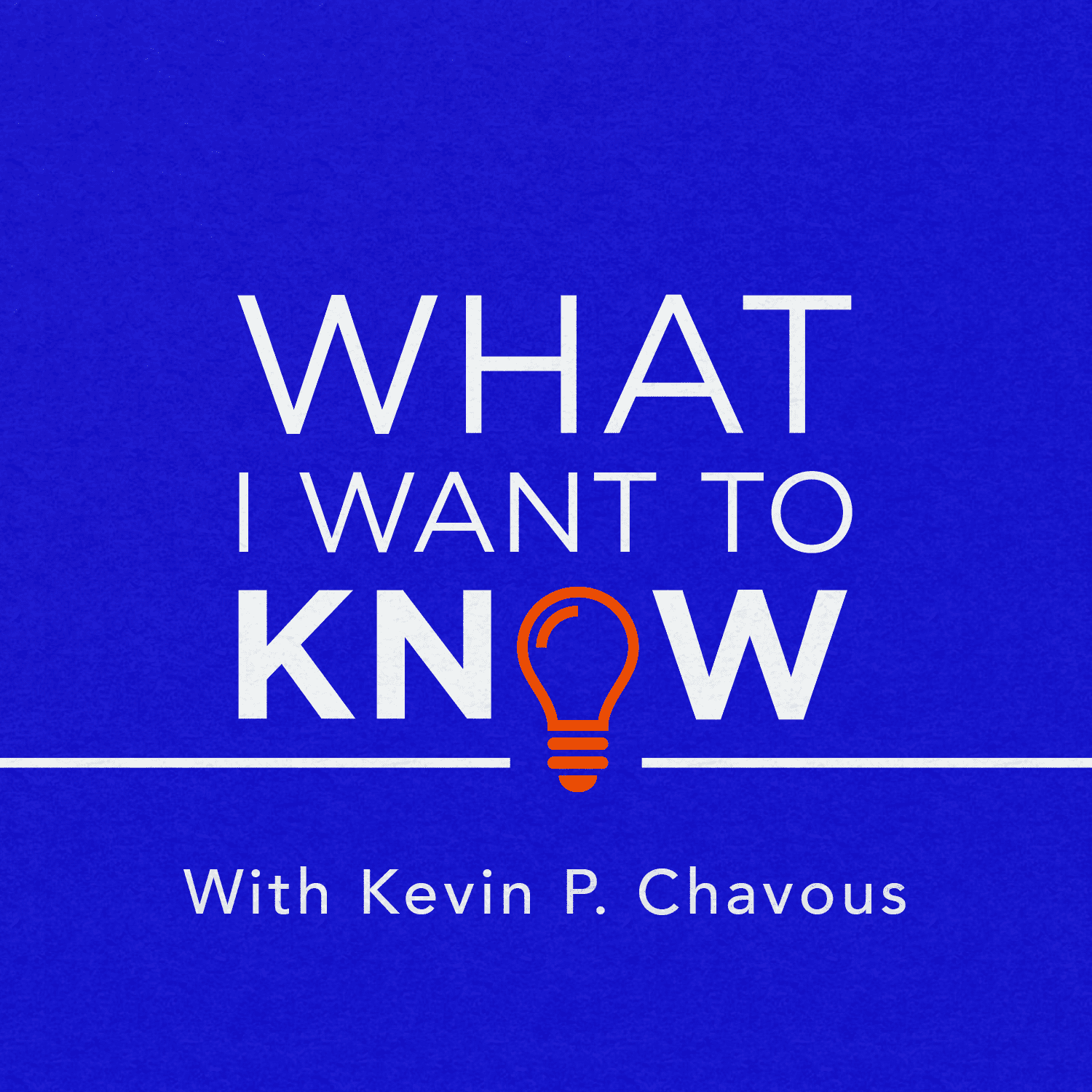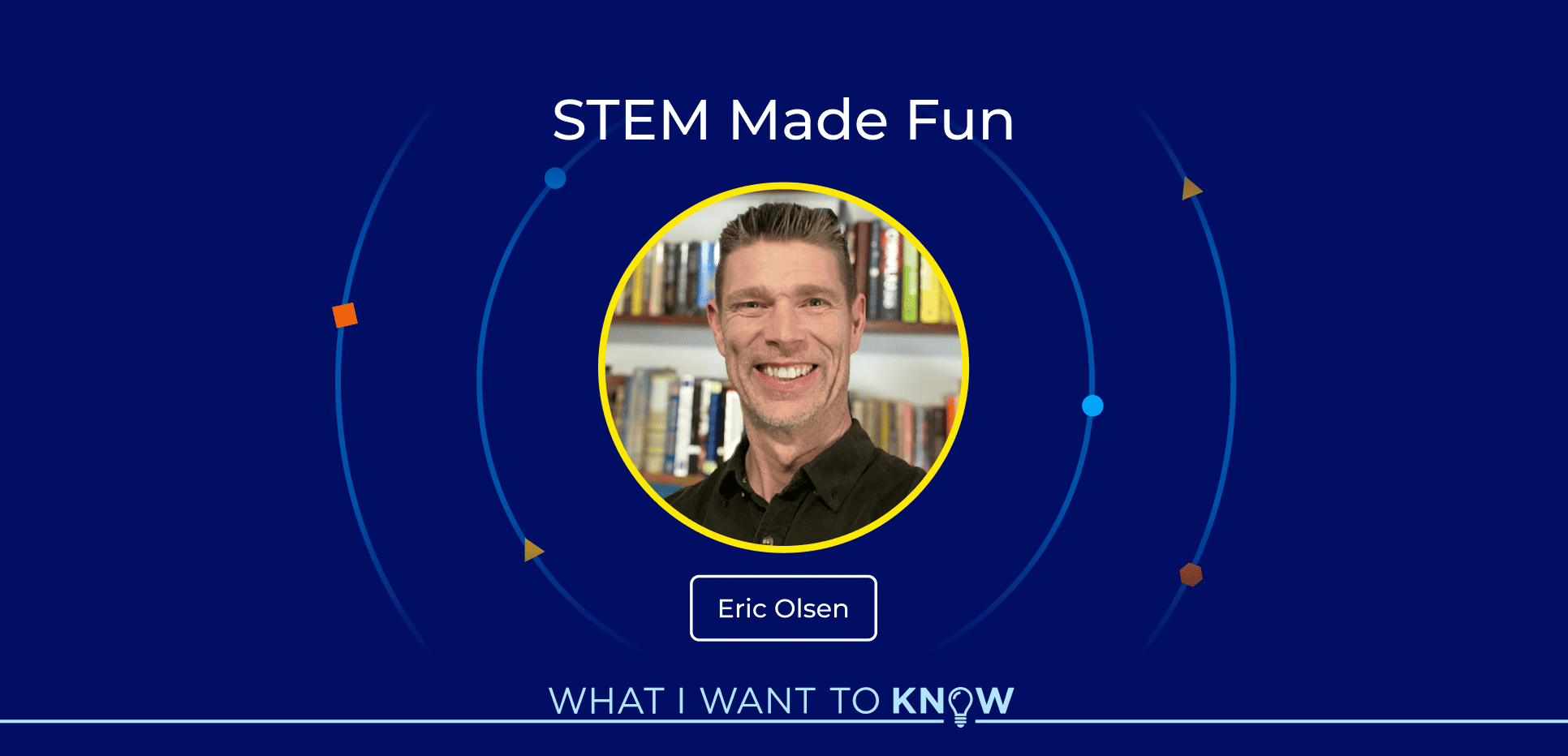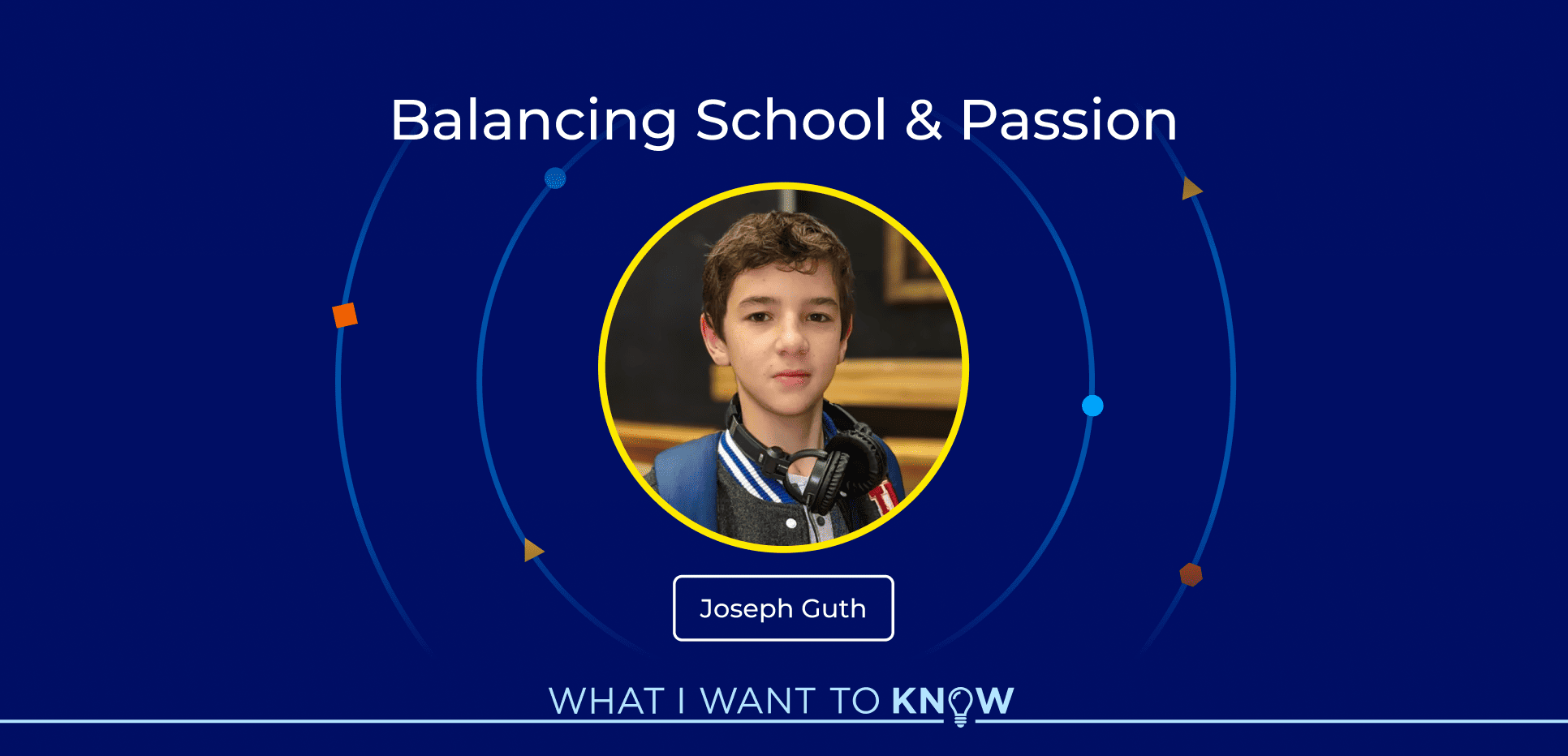In 2023, I had the privilege to speak with experts, school leaders, teachers, parents, and students about the most pressing issues in education today. The show explored what the future of education could hold and how we can encourage lifelong learning in all students.
To celebrate the end of 2023, here are some of my favorite moments from the show this year. Share your favorite moments from the show with us, using the hashtag #WIWTK on social media.
To catch full episodes, including your favorites or any you may have missed, subscribe and follow on Apple Podcasts, Spotify, or YouTube, and be sure to join me in 2024 as I continue to dig deep into the emerging needs and new opportunities in education today.
Listen to the Full Audio
Listen on: Apple Podcast, Spotify
Transcript
Kevin: Thank you so much for joining me, Kevin P. Chavous this year for “What I Want to Know.” In 2023, I had the privilege to speak with experts, school leaders, teachers, parents, and students about the most pressing issues in education today. We’ve also had fun exploring what the future of education could hold and how we can encourage lifelong learning in all students.
Kevin: To celebrate the end of 2023, here are some of my favorite moments from the show this year. And share your favorite moments from the show with me using the #WIWTK on social media.
To catch full episodes, including your favorites, or any you may have missed, subscribe and follow on Apple Podcasts, Spotify, or YouTube. And be sure to join me in 2024 as we continue to dig deep into the emerging needs and new opportunities in education today.
David: This notion of sitting in rows for 45 minutes and then the bell rings and you move to the next class, that’s going to be an archaic way for learning. And it’s actually not the most natural way for us to learn anyway.
Kevin: No.
David: And it is diametrically opposed to the way the world of work actually happens. People in business are designed to solve problems. So you’ve got to work cooperatively, and you’ve got to bring a skill set to bear on solving those problems. That’s the way our schools are going to have to be as well. It’s going to require dramatic change of our schools. That’s why you need visionary leaders to help people understand it. Otherwise, we’ll just continue to lead our districts like we’ve led them for a hundred years.
Kevin: Yeah.
Shree: But I share with parents, “You’ve got to muscle up. You’ve got to go in there and you’ve got to say, ‘I’m your partner. I want to partner with you, and here are my expectations.'” You put them on the line. Schools have expectations. They want your child to come clean, ready, prepared, you know, for the day. What are your expectations, you know, for them? So you need to have your expectations, and you need to know what you’re looking for. And it starts with “why.”
Kayla: You know, the public education system is the largest entitlement program in the country. And to use the term, like it’s a sacred cow in our country. It’s something that you just, you don’t touch. And it’s hard to shift paradigms into we don’t have to do away with something entirely, completely. We don’t even have to necessarily completely change what it is, but we need to be able to make room for what else can be.
Jon: I think that’s the most important thing, is to kind of get a sense of your child and what it is that you value, kind of what you’re expecting out of school. I think different parents have different experiences that way. If you can, visit the school, talk to other parents who are there. Read the reviews that we have. There are a vibrant set of experiences from other parents. I think those are important things.
And then I think there’s a lot of things that are important to understand. How does a school teach reading if you’re in elementary school, right? We’re learning a lot more about that and understanding kind of the variety of ways kids are learning, and those are things not always captured in data. So try to get a sense of that. What are the other experiences that you want for your kid?
Tony: Schools are not focusing enough on mental health. We need social-emotional awareness. We need mental health community. We need community and vulnerability within our schools, because if the individual isn’t getting it at home, they’re going to try and get it at school. But if the school is still only focused on reading, writing, and arithmetic, we’re going to continue to spiral out of control until the mass is in that place. And COVID, from my experience, has created a multitude more of individuals like me.
Kevin: Absolutely.
Tony: I have never seen anything like it.
Kevin: Yeah. Absolutely.
Tony: And this is not me speaking from fear.
Kevin: Yeah.
Tony: This is me speaking from somebody that’s in schools every day or every week of the year.
Kevin: Yes.
Tony: I can’t explain how much more kids are struggling. They’re struggling so much more as a result of these two years of disconnect that they’ve had, the constant exposure to the trauma at home and what was happening, and not being able to be with people in community or play sports and get that relief that I had when I was on my bike. That now, we have kids using substances at such a younger age and more acceptably.
Onnikah: Ever since the pandemic hit, all the moms want to know, “What do I do now? Like, oh, my gosh, like I’ve never even thought that they would be home with me.” You know what I mean?
Kevin: Yeah.
Onnikah: “And I don’t know step one.” I’m like, “Actually, you do. You do know step one, and you’ve been doing it for years. You know, from the beginning, you’re their first teacher.”
Anne: If your child is cutting, there’s a course on cutting. If your child is dealing with anger, or resentment, or depression, or anxiety, there’s courses that are directly to parents on these topics that are not like, “Here’s a YouTube course on anger.” This is a course that’s directed to you’re a parent and you’re dealing with a child with anger. Here’s how you can help them. It’s directed to you as a parent to get you the resources you need so that you can support your child. And I think that’s one of the things I’m most proud of with the work that we’re doing is that we’re helping parents be that first line of support for their child, because we know that because of shame and stigma and all the other barriers, financial, all of those kind of things, people don’t know where to go or how to ask. And then when they do ask, they’re often months away from services.
Sharif: But I would start there. What is the Black students’ experience as students in my school and district? You know, one of the number one things that will deter a future educator is being in there as a student and saying, “I don’t want to be colleagues with my teacher. I don’t want to ever work under a person like my principal or my superintendent.”
So what are their experience? And making sure that we are soliciting the experience and asking them, “Hey, what would you rate your school experience, you know, 1 to 10?” And whatever number they give, the next question should be, “What do you need to see from me to make it two points higher?” Right? So even just asking that and being proactive. Not waiting for, “Oh, yeah, we’ve got a suggestion box over here, you know, in the corner, dusty.” But no, actually soliciting and getting the feedback from students about their experiences.
Christine: This is because of the lack of sex education that folks have. We are not navigating our relationships in a way that is respecting and affirming all of the people who we do interact with and who we may be engaging in any kind of relationship with. And it really struck me how much we need to have a different conversation about sex education, that’s not just about teen pregnancy prevention, but the universal goal of respecting each other’s humanity, individuality, and learning how to navigate that with deeper affirmation and respect for one another.
Chuck: And I would just say this, as we continue to remove this, or let’s say this, when we continue to put dignity in work and remove this negative connotation of working with your hands, as you know, all these things promote opportunity to our students. And by the way, the pay is awesome. I mean, there’s really no debt in this because most of the time the employer pays for that. So I would just say that it’s difficult. We had to meet with the Department of Labor. We had to meet with the Federal Department of Labor. We had to meet with our bonding company, our insurance company. But when I sat in the meeting to talk about how that was all going to happen, I didn’t say, “Can it happen?” I said, “This is what we’re doing.”
Stephen: And then the flip side is children will never be well-read if they’re not well-fed, particularly elementary school kids. I’m in a largely immigrant community right now. And to think their parents are paying $3 or $4 for a little six-ounce container of Red Bull because it’s marketed to them with such sophistication that they think they’re doing their young kids a favor is absurd. So reestablishing the connection with healthy food and healthy nutrition. You can’t perform in school if you’re poorly nourished, or malnourished, or hopped up on sugar. So, for me, integrating food into school is perhaps the most humane, just in planet-forward solution that we can come up with. And here in the South Bronx, I’m growing the next generation of plant-forward students and environmental and social justice advocates.
Lauren: If I could wave a magic wand, and every superintendent and school leader really believed in the potential of a child with a disability, and believed that they could achieve, and the decisions that they made trickle down from that belief, I think that would be the biggest game changer is simply the belief. But so often the belief isn’t there, and so all decisions that are made, you know, “Oh,” and it’s incremental. It’s like death by a thousand cuts. It’s, “Well, you know, that’s a classroom, and it’s kids with disabilities. So we won’t give them the strongest teacher because we don’t think their outcomes are going to be good. So it won’t hurt them as much.” Those kind of really ableist decisions that are deeply embedded in our structures and our systems in our schools, and society, in general, are what contribute to it.
Ada: And I think poetry can help us reclaim that sense of not just our humanity, but our sense of community. So to actually all be experiencing something together, the same breath work, the same tonality, the same sort of energy shift that poems allow for, I mean that can be a really impactful experience for not just students, but for faculty as well.
Arne: And so I do see our country fraying at the edges, having our democracy fraying at the edges. And it sort of goes back to what we talked about earlier, that the only way I know how to knit our democracy back together and strengthen it is by providing a high-quality education to every child and doing that in full partnership, full transparency with parents. We all need each other. If we learned nothing else from COVID, we learned how interdependent we are. None of us are safe, none of us are healthy, none of us are living our best lives unless we all have those opportunities. So it’s a massive challenge, but I think an extraordinary opportunity that I hope we have the courage and wisdom to seize going forward.
Kevin: Thanks for listening to “What I Want to Know.” Be sure to follow and subscribe to the show on Apple Podcasts, Spotify, or your favorite podcast app so you can explore other episodes and dive into our discussions on the future of education. And write a review of the show. I also encourage you to join the conversation and let me know what you want to know using #WIWTK on social media. That’s #WIWTK.
For more information on Stride and online education, visit stridelearning.com. I’m your host, Kevin P. Chavous. Thank you for joining “What I Want to Know.”






